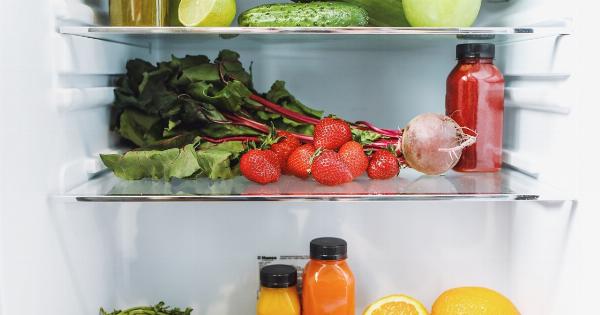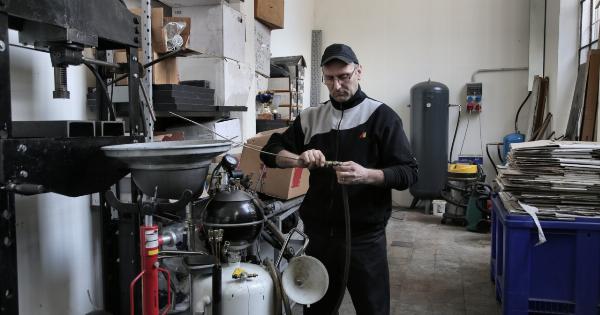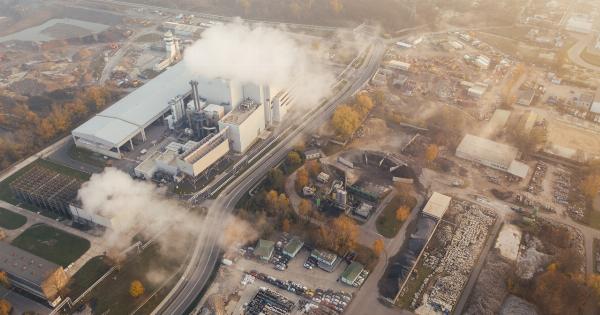Cooking and baking are processes that we perform almost daily in our kitchens. We prepare meals for our families, experiment with new recipes, and indulge in the sweet aroma of baked goods.
However, we rarely consider the impact that these activities have on our planet’s health. From greenhouse gas emissions to food waste, cooking and baking can contribute to environmental degradation in a number of ways.
Greenhouse Gas Emissions
One of the most significant impacts of cooking and baking on the environment is the emission of greenhouse gases.
The burning of fossil fuels, such as natural gas and propane, releases carbon dioxide, methane, and other greenhouse gases into the atmosphere. These gases trap heat and contribute to global warming. Cooking and baking with traditional ovens and stoves that use these fuels can significantly increase our carbon footprint.
Fortunately, there are ways to reduce the amount of greenhouse gas emissions produced during cooking and baking. One option is to switch to more energy-efficient appliances, such as electric ovens and induction cooktops.
These appliances use less energy and emit fewer greenhouse gases. Additionally, opting for plant-based meals over meat-based meals can also reduce emissions. Livestock production is a major contributor to greenhouse gas emissions, and reducing meat consumption can help mitigate this problem.
Sustainable Cooking and Baking Practices
In addition to switching to more energy-efficient appliances and reducing meat consumption, there are a number of other sustainable cooking and baking practices that can help reduce our impact on the environment.
For example, cooking in bulk can help reduce energy consumption, as it is more efficient to cook a large amount of food at once than to cook several small portions. Additionally, using reusable containers instead of disposable ones and composting food waste can also help reduce our environmental impact.
Another sustainable cooking practice is using seasonal and locally-sourced ingredients. Transporting food across long distances requires energy and contributes to greenhouse gas emissions.
Choosing ingredients that are in season and grown locally can reduce transportation-related emissions. Additionally, supporting local farmers and businesses can help support the local economy and reduce our carbon footprint.
Reducing Food Waste
Food waste is another significant environmental problem associated with cooking and baking. According to the United Nations, roughly one-third of all food produced in the world is wasted.
This waste not only represents a missed opportunity to feed hungry people but also contributes to greenhouse gas emissions. When food waste is sent to landfills, it decomposes and releases methane, a potent greenhouse gas.
One way to reduce food waste is to plan meals carefully and only purchase the amount of ingredients needed. Additionally, using ingredients that are near their expiration date or have slight imperfections can help reduce waste.
Reusing leftovers and composting food scraps are also effective strategies for reducing food waste.
The Importance of Food Packaging
Food packaging is another factor to consider when assessing the environmental impact of cooking and baking. Many food products are packaged in single-use plastic or other materials that contribute to waste and pollution.
These materials can take hundreds of years to decompose and can harm wildlife and ecosystems.
However, there are more sustainable packaging options available. Choosing products that are packaged in recyclable materials or that use minimal packaging can help reduce waste.
Additionally, using reusable bags and containers to transport food can also help reduce our environmental impact.
Conclusion
While cooking and baking are essential components of our daily lives, they can have significant impacts on our planet’s health.
By adopting sustainable cooking and baking practices, such as reducing meat consumption, cooking in bulk, and reducing food waste, we can minimize our environmental impact. Additionally, by choosing energy-efficient appliances and sustainable packaging options, we can further reduce our carbon footprint and help protect the environment for future generations.






























